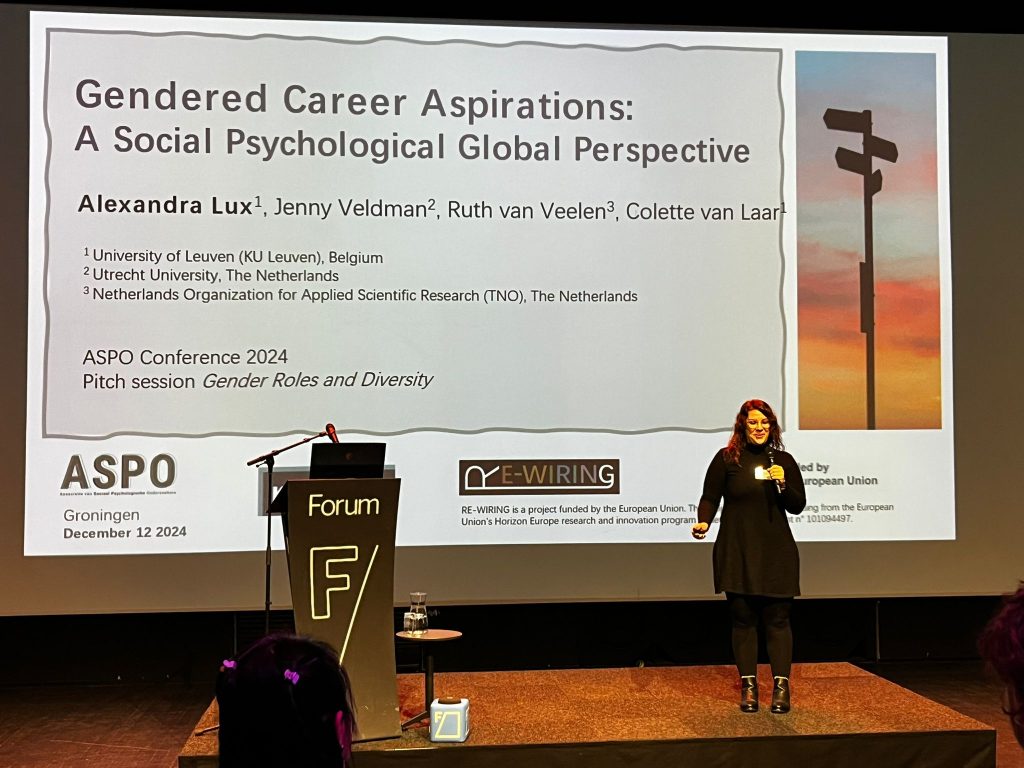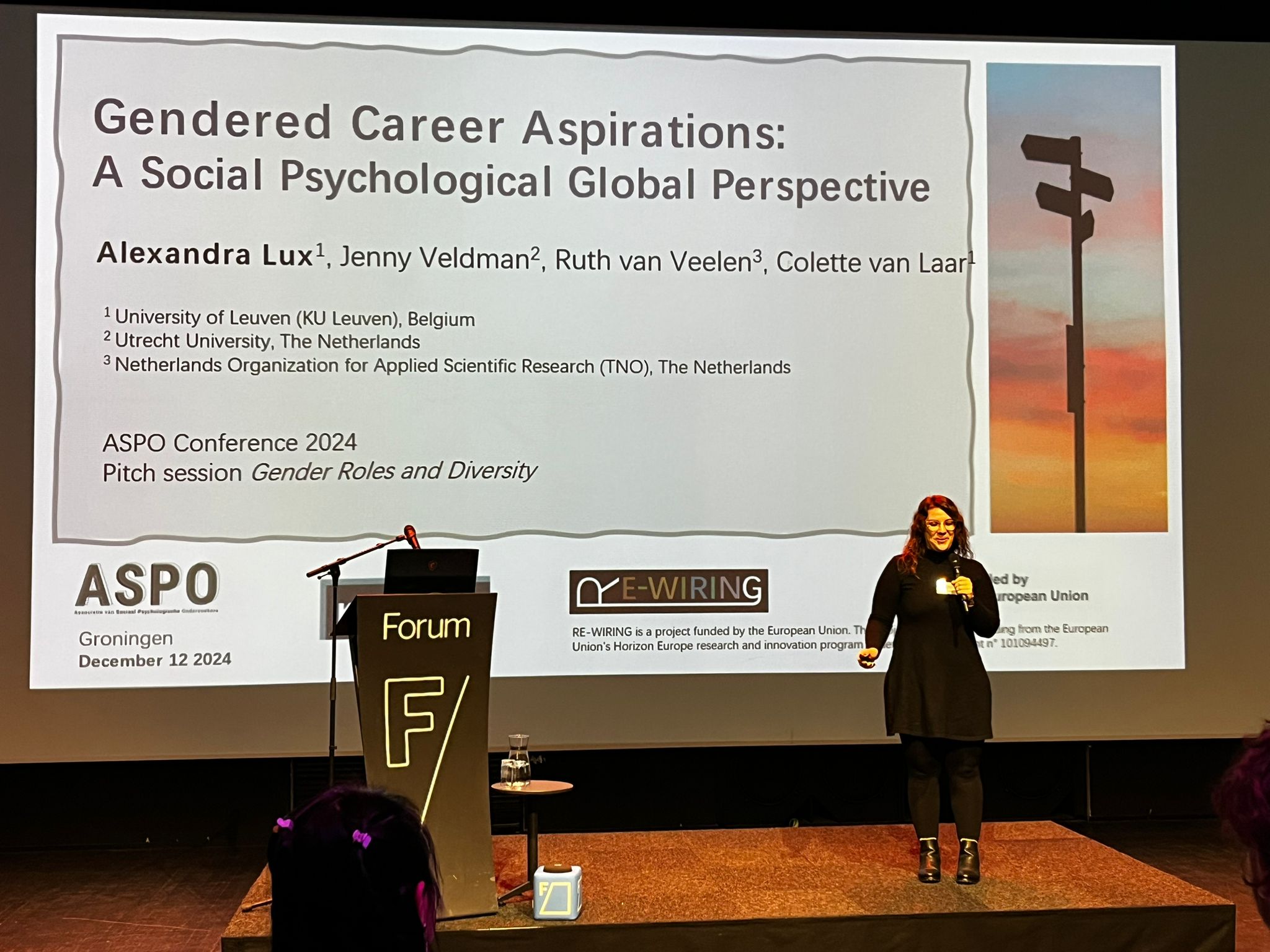On December 12-13, 2024, Alexandra Lux, PhD, member of the RE-WIRING team, participated in the Annual Meeting of the Dutch Association of Researchers in Social Psychology (ASPO 2024) held in Groningen. The conference gathered leading researchers to discuss critical advancements in social psychology, and Dr. Lux contributed valuable insights on reducing gendered educational choices, a pressing issue for global education systems.

Drawing on RE-WIRING’s ongoing research, Dr. Lux highlighted four essential stepping stones to design effective interventions that challenge and reduce gendered educational pathways:
1. Tailored Solutions for Specific Contexts Interventions must be tailored to address the unique reasons behind gendered educational choices, which differ depending on cultural and geographical contexts—such as between WEIRD (Western, Educated, Industrialized, Rich, and Democratic) and non-WEIRD countries or between the Global North and South. Effective strategies require identifying root causes, such as gender-biased textbooks or students’ confidence gaps, and addressing them directly, rather than applying one-size-fits-all solutions.
2. Engaging Teachers and Parents While many interventions focus solely on students, including teachers, parents, and the broader school system can significantly amplify impact. Teachers are influential in guiding students’ educational and career decisions, and parents play a pivotal role in shaping children’s perceptions of study and career options. By shifting focus from “fixing the student” to changing the systems influencing their choices, interventions can achieve more sustainable outcomes.
3. Using an Intersectional Lens for Greater Impact Interventions can be made more effective by adopting an intersectional approach that addresses the overlapping social identities—such as gender, race, and socioeconomic background—that shape unique experiences of inequality. By showcasing diverse role models who reflect students’ realities, interventions become more relatable and impactful for a broader audience.
4. Including Boys to De-Bias Educational Choices Dr. Lux emphasized the importance of targeting boys in efforts to de-gender career paths. While many programs focus on encouraging girls to enter STEM fields, few initiatives aim to attract boys to healthcare, early education, and domestic (HEED) sectors. Addressing this imbalance is critical to breaking gender stereotypes, ensuring HEED sectors receive adequate staffing, and allowing boys to pursue meaningful careers free from societal expectations.
Looking ahead, the RE-WIRING team will test a novel intervention as part of Work Package 3 (WP3). Building on the insights presented, the intervention will combine key strategies, such as applying an intersectional lens to role models and emphasizing both agentic (getting ahead) and communal (getting along) aspects of various professions. These innovative approaches aim to further dismantle barriers to gender-equitable educational choices.
Dr. Lux’s presentation at ASPO 2024 underscores the RE-WIRING project’s commitment to advancing research and fostering systemic change to reduce gender biases in education and career pathways.







Leave a Reply